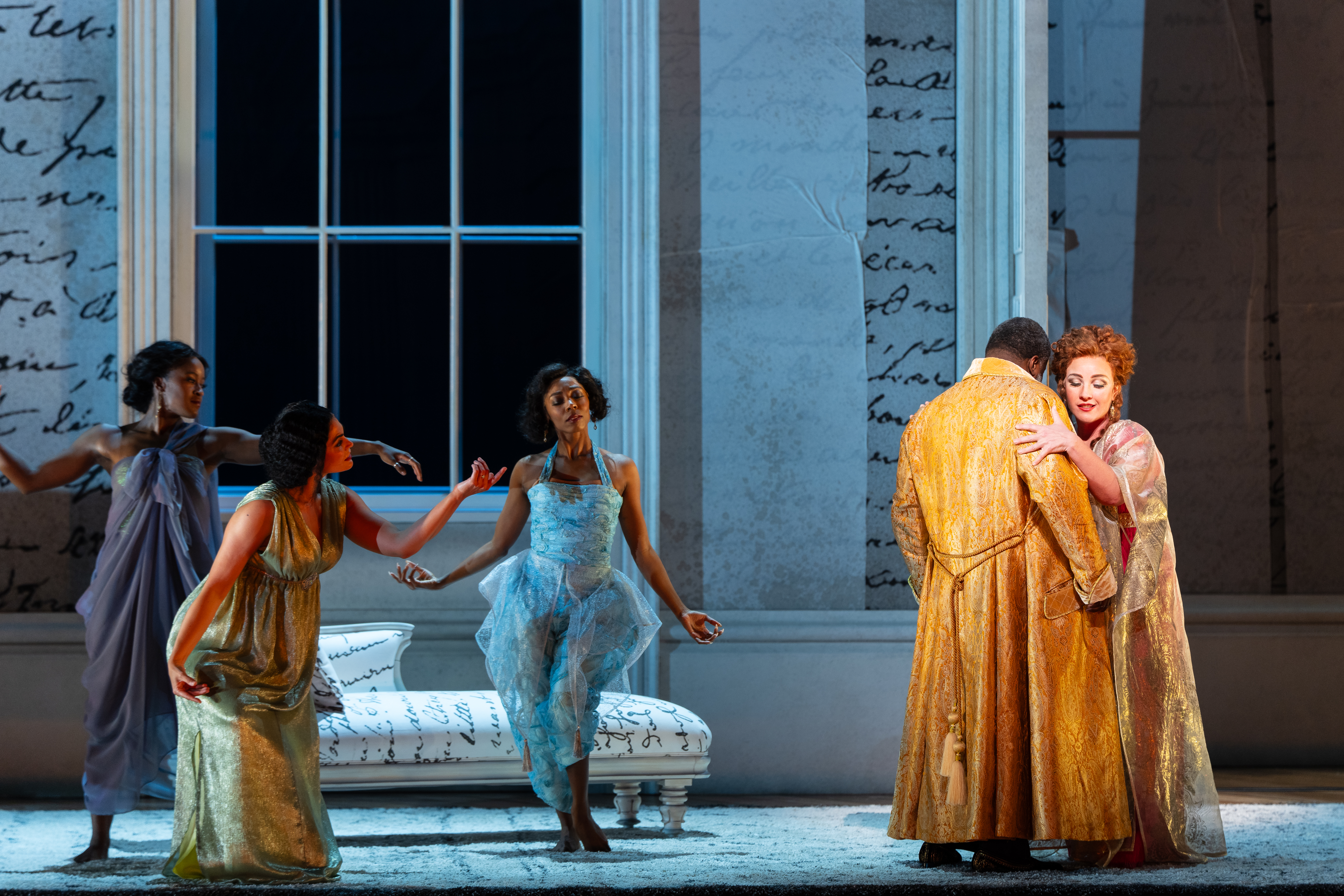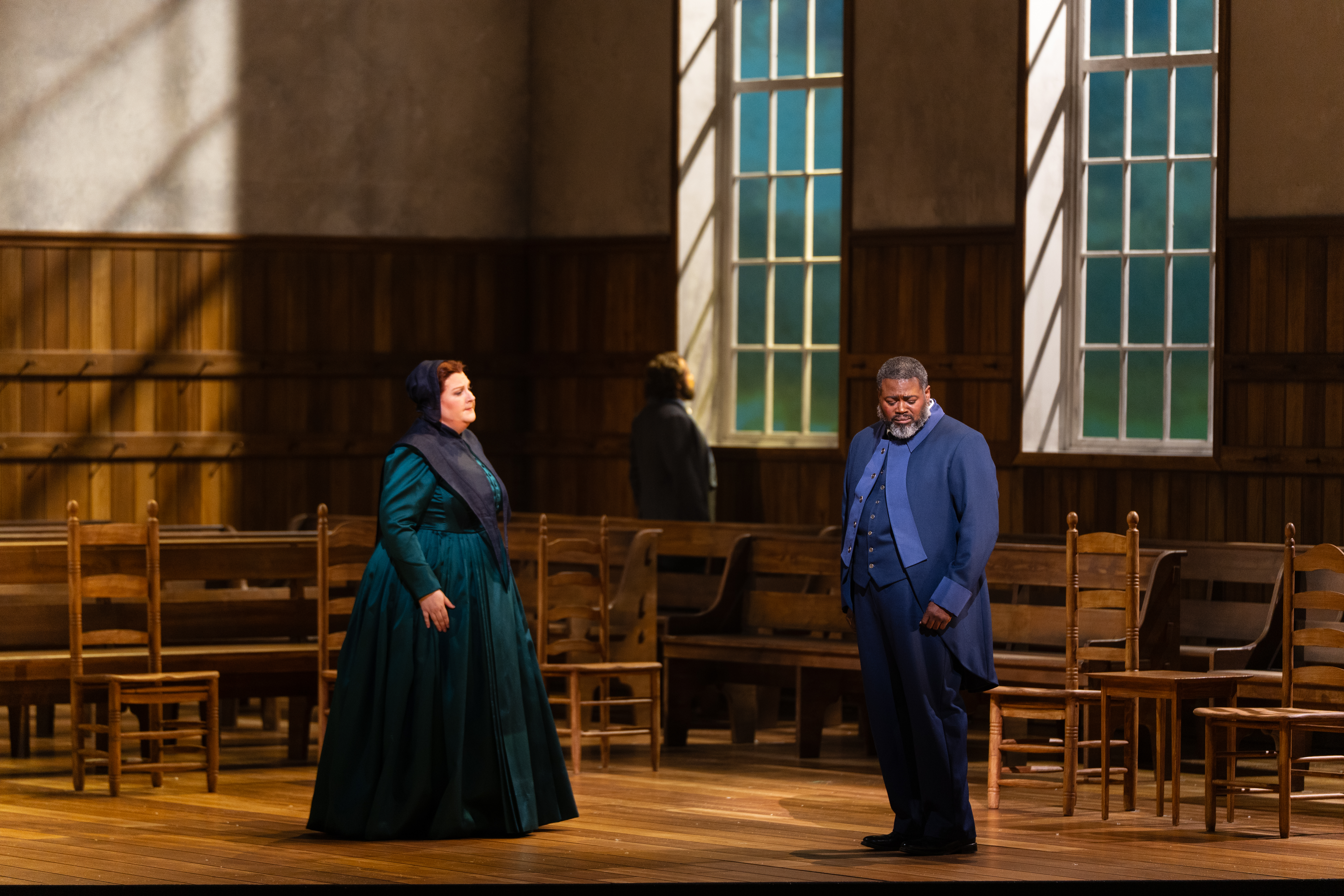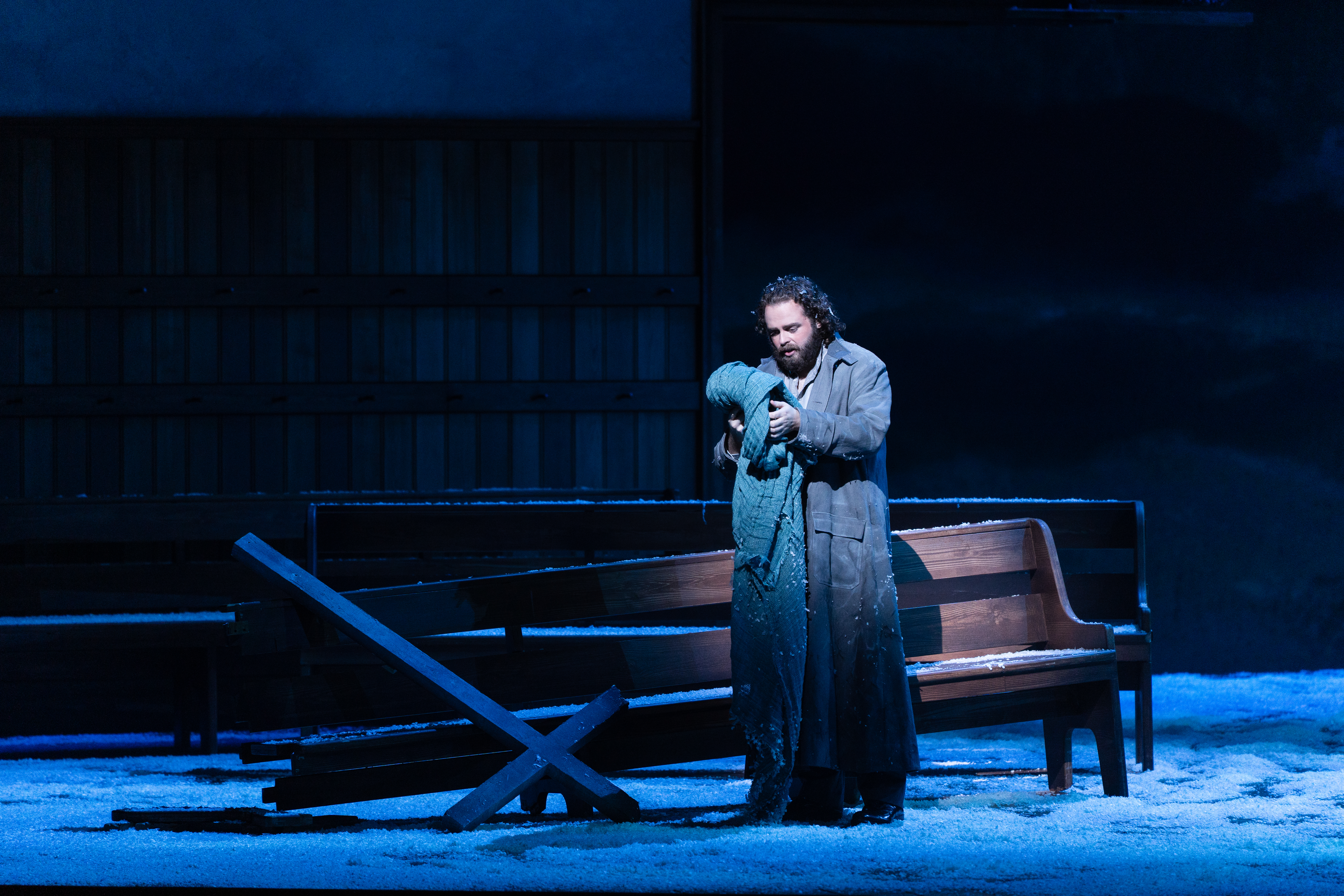TANNHÄUSER: QUICK START GUIDE
THE OPERA IN ONE SENTENCE
The minstrel knight Tannhäuser is shunned by his community for consorting with the goddess Venus, but he’s miraculously redeemed by the sacrifice of his admirer Elisabeth.
BACKGROUND
Wagner’s opera, like much of his output, is based on medieval German myths. His libretto combines two tales of minnesingers—minstrel knights who sang songs of courtly love. While the 13th-century minnesinger Tannhäuser really existed, his journey to the Venusberg and his pilgrimage to Rome to beg forgiveness from Pope Urban IV are the stuff of legend. The portions of the opera set in the Wartburg are taken from another story that didn’t originally involve Tannhäuser. In 1207, the Landgraf (or Count) of Thuringia held a singing festival at his castle. All the minstrel characters in Wagner’s opera were real-life minnesingers who allegedly took part in this epic competition.
Wagner wrote Tannhäuser in 1845 when he was living in Dresden and serving as the court conductor to the King of Saxony. After being exiled from Germany for his left-wing politics, Wagner eventually relocated to Paris. He revised the opera in 1861 to suit French tastes—including the addition of an expanded ballet sequence during the Venusberg scene. HGO’s production restores the earlier Dresden Version of the score.
WHAT TO LISTEN FOR
Pay close attention to the iconic overture, which lays out a kind of musical roadmap to the opera. It presents three central leitmotifs—that is, recurring themes associated with people, places, and ideas. First, we hear the solemn yet hopeful hymn that the pilgrims intone as they traverse the stage on their way to Rome. A sudden shift to shimmering orchestral textures marks the transition into the Venusberg music, a bacchanalian dance that climaxes in a throbbing evocation of erotic ecstasy. Finally, the overture introduces Tannhäuser’s ode to Venus, a rousing, heroic number that will land the protagonist in hot water during the singing contest.

Act II opens with Elisabeth’s ebullient “Dich, teure Halle,” in which she rapturously greets the Wartburg’s music hall. Listen for the rapid triplet figures in the orchestra and the wide, upward leaps in the vocal line that convey her giddy excitement at seeing Tannhäuser again. While the minstrels who take part in the competition were real historical figures, Wagner’s harp-accompanied minnesinger songs are mostly German Romantic reimaginings of medieval music.

Act III features Wolfram’s exquisite “O du, mein holder Abendstern.” This melancholy ode to the evening star (the planet Venus) is a tender expression of his secret love for Elisabeth. The highlight of the act is the so-called “Rome Narrative,” in which Tannhäuser recounts his meeting with the pope. It’s less an aria than an extended musical monologue. Listen for the anxious string leitmotif that reappears forebodingly throughout his speech.

FUN FACT
The Tannhäuser overture serves as the soundtrack to the 1987 film Epidemic by Lars von Trier, whose Breaking the Waves is the basis for HGO’s other spring opera. The closing credits even feature a Ghostbusters-style pop theme-song based around a chord progression from the pilgrims’ hymn. István Szabó’s 1991 film Meeting Venus depicts a behind-the-scenes drama of an opera company staging a production of Tannhäuser. Glenn Close stars as the soprano playing Elisabeth, her singing voice dubbed by Kiri Te Kanawa.
SYNOPSIS
VENUSBERG AND THE FOREST
ACT I
Tannhäuser, a poet and musician, is a member of an austere religious community that has rejected the excesses of the outside world. As Tannhäuser reaches adulthood, he is allowed to explore life beyond the community. As an artist, he has never felt entirely comfortable within his society, so he travels and is captivated by the boldness and creativity in an urban landscape dominated by the excesses of Venus, the Goddess of Love. She has established a progressive urban salon where artists and intellectuals unite to challenge the norms of art and society.
Plagued by guilt over abandoning his community, he leaves Venus and returns to them in the spring. Upon arrival, he follows a shepherd’s song and hears a group of pilgrims traveling to Rome in search of repentance for their sins. He finds the men of his community who are out hunting and is drawn back into their circle with news of Elisabeth, for whom he once had strong feelings. Together with Tannhäuser, the men and their leader, the Landgraf, decide to reinstate the song contest that had been absent from their lives since his departure.
INTERMISSION
THE SONG CONTEST
Act II
Elisabeth warmly greets Tannhäuser at the community gathering hall before the song competition begins. The Landgraf announces a challenge to sing about the true nature of love. Each contestant presents a song, and Tannhäuser, having experienced a different world of sensual and creative inspiration to comprehend love, mocks his friends’ contributions. Suddenly, Venus appears as a vision to Tannhäuser, inspiring his song. His community is shocked by his words and casts him out into exile. Elisabeth intercedes on his behalf, defying the men. The Landgraf offers a compromise to Tannhäuser: to join the pilgrims going to Rome to see the Pope and seek forgiveness for his sins. Tannhäuser decides to atone and joins the group of pilgrims. He leaves behind Elisabeth and his close friend Wolfram.
INTERMISSION
THE VALLEY IN WINTER
ACT III
The many facets of love, as opposing forces in the opera’s universe, battle within Tannhäuser’s psyche as his pilgrimage unfolds. The pilgrims return in the dead of winter, but Tannhäuser is not among them. Elisabeth offers her life for his salvation. Wolfram laments Elisabeth’s pain as he, too, seeks the meaning of love. Suddenly, a single pilgrim returns; it is Tannhäuser. However, he despairs as he tells Wolfram that the Pope proclaimed he could no longer be forgiven for his sins than the papal staff can bear green leaves again. He decides to return to Venus when, suddenly, Elisabeth’s funeral procession appears. Tannhäuser abandons Venus and implores Elisabeth to pray for him in heaven. As dawn breaks, another group of pilgrims arrives, telling of a miracle: the Pope’s staff, which they carry with them, has blossomed. Elisabeth’s death is tied to a miracle: the flowering of a Pope’s staff, signaling Tannhäuser's repentance, which has led to his salvation.
HGO PERFORMANCE HISTORY
HGO previously performed Tannhäuser in the 1971-72, 1987-88, and 2001-02 seasons.